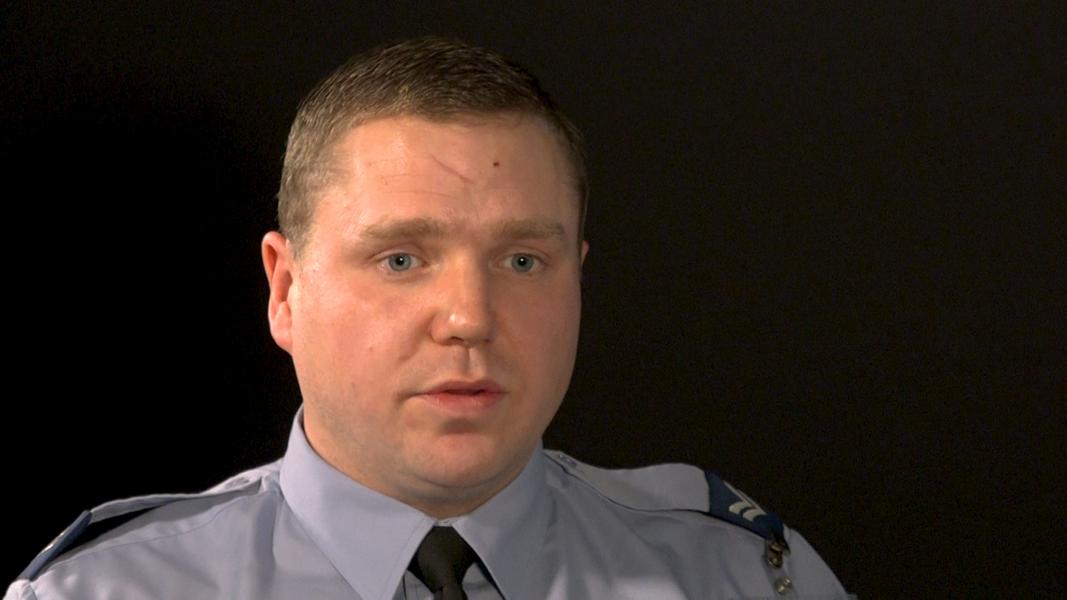it's just been announced as just being disbanded
which is very sad for the trade, very sad for the air force.
However, the decision's been made
and the main proportion of Bomb Disposal
will be saturated up with the army
and some elements with the navy.
So, it's been around for a very long time,
so we've got a lot of history on 5131 Bomb Disposal Squadron
at RAF Wittering.
We specialize in air dropped weapons
whereas the army will specialize in land munitions
and the navy anything below the water level
but the commitments the RAF Bomb Disposal had
was not just conventional munitions as in rockets,
bombs, missiles, it was also IED responsibility that we had.
We're an area of operation,
so anything that's called in through the police
will get through in our area
for us to and, or for the guys
on the squadron to go and sort out.
The question about bomb disposal being dangerous
is asked all of the time
and what I say is that the training
is so good
and lengthy and continuous
that the way we look at it is if you think
you're going into a dangerous situation,
is there a way that we can make it safer first?
We're not going to go in there
to harm ourselves.
Well, unless it's a task
that would necessitate putting yourself
in danger to save another life
but that doesn't happen very often.
So, most of the time,
you risk assess a situation,
you make it as safe as you possibly can
and because that task is quite demanding
on your thought processes,
the danger eases.
The feeling of danger eases
because you know, you methodically make things safer
and with more and more tasks that you carry out,
some tasks have common things,
so you then gain experience,
so with training and experience
and a great team of lads around you, lads and lasses,
then it's not maybe as dangerous sometimes
as people may think.





